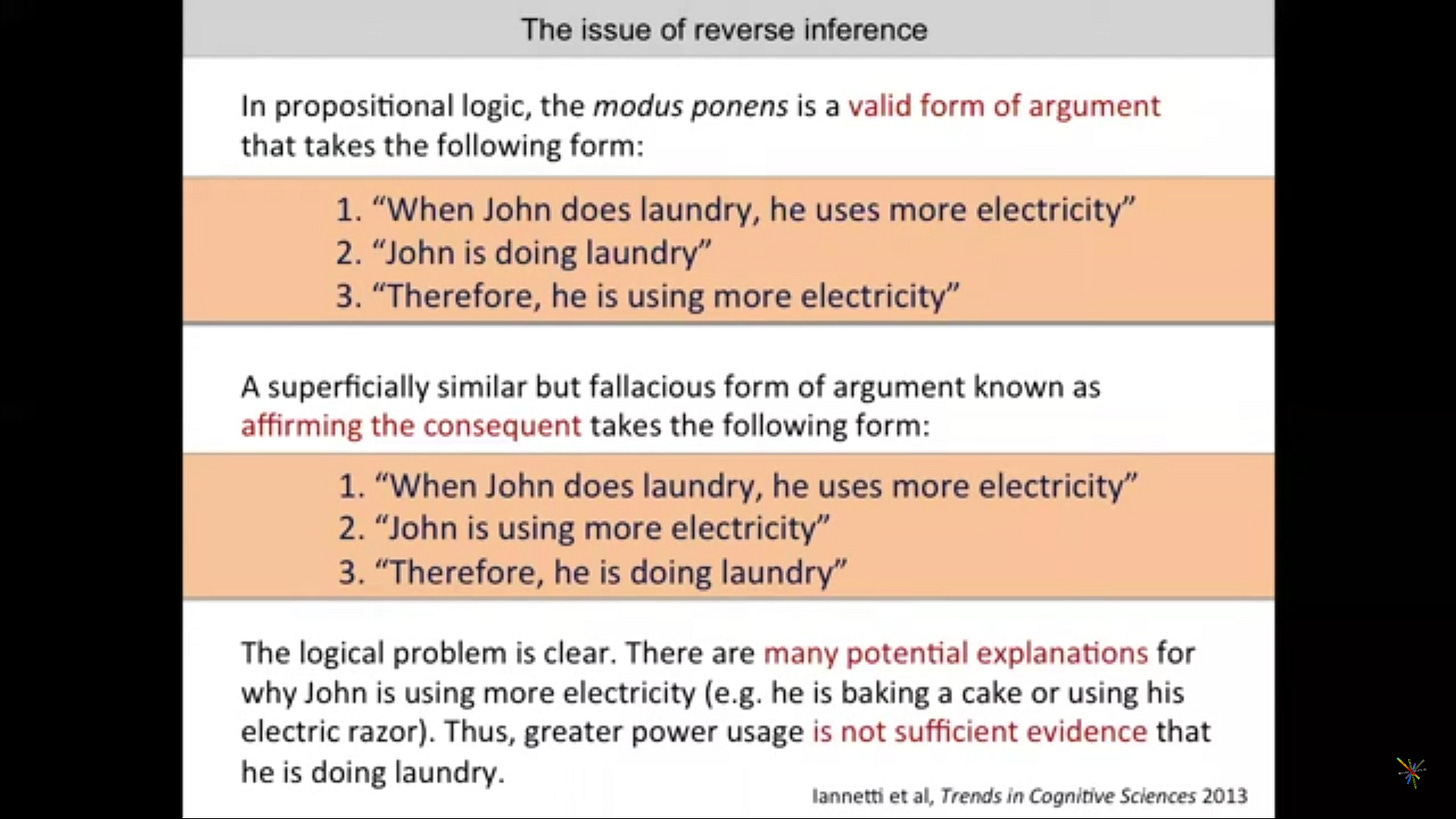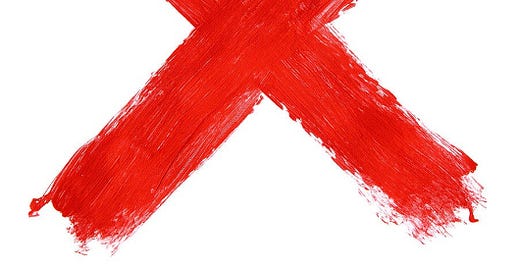As many know, there is a huge, perhaps even overwhelming, controversy over the phrase “From the river to the sea, Palestine will be free.” Proponents of it say that it is a message of peace, expressing a wish for the lifting of oppression of Palestinians in their native land; opponents say that the phrase is a threat, one that implies the destruction not only of the state of Israel but also all of the Jewish people in it. It’s rather impossible to reconcile these two readings.
Opponents of the phrase will point to the manifesto from 1988 by a Hamas figure, who used the phrase. Proponents will point to the fact that the Likud party platform in 1977 also used a very similar turn of phrase, but with Israelis emerging above all: “[B]etween the Sea and the Jordan there will only be Israeli sovereignty.” Indeed, current Israeli Prime Minister Benjamin Netanyahu just used this phrase in recent weeks.
So is the phrase itself antisemitic? If Netanyahu can use it and not mean it in a self-negating way, clearly the phrase is context-dependent, is it not?
Something about the debate nettled me. It just didn’t sit right. To me, there always seemed to be a jump to a conclusion, one that elided several steps in order to find fault with the utterer of the phrase. But I couldn’t quite put my finger on the problem area, the patch of intellectual quicksand.
Then, a few weeks ago, I discovered the name and, more importantly, the steps involved in this faulty bit of logic.
That’s right: the idea that “from the river to the sea” as being anti-semitic is based on a logical error.
The error involved is called affirming the consequent.
So, I’m giving a shorthand here. I am not walking us through the basics, such as what a syllogism is, other than to say it’s a structure that uses premises to come to a conclusion. If the premises are true, the conclusion, when logically deduced, is also true.
The syllogism in affirming the consequent becomes corrupted, because the person adopting the conclusion uses it in the argument itself as a premise. So the person concludes something that is not logically sound.
Take this theoretical argument, for example:
When John does laundry, he uses more electricity.
John is doing laundry.
Therefore, he is using more electricity.
This is a perfectly logical argument. The premises, when taken together as an if-then statement, produce the conclusion. (This form of argument, incidentally, is called modus ponens.)
Affirming the consequent uses a similar but reversed form:
When John does laundry, he uses more electricity.
John is using more electricity.
Therefore, John is doing laundry.
This is incorrect. John could be doing any number of things that could be consuming electricity, laundry being one of many such options. Maybe he’s running the garbage disposal or vacuuming the carpet. Thus, one cannot conclusively say that John is doing laundry, only that he may be doing laundry.
This same logical error features in many false accusations of purported anti-semitic intent.

Opponents of “from the river to the sea” (FtRttS) will say, “When you say FtRttS, you are clearly condoning the extermination of Jewish people.” This particular example is extraordinarily egregious, based on many steps of substitution of meaning in addition to this instantiation of affirming the consequent.
Again, using the syllogistic form, we see that the argument would be structured like this:
A person who supports elimination [of Jewish people] is likely to use the phrase FtRttS.
Sally supports such a policy, odious as it is.
Thus, Sally is likely to use the phrase FtRttS.
However, people who claim that the phrase is always anti-semitic rely upon this form of argument:
A person who supports elimination is likely to use the phrase FtRttS.
Rebecca uses the phrase FtRttS.
Therefore, Rebecca supports that policy.
This is wrong. That’s an invalid inference. Rebecca may simply advocate for a more equitable, across-the-board implementation of equal, universal civil rights for all inhabitants in the area encompassed by the Jordan River to the west and the Mediterranean Sea to the east. This is especially true if Rebecca explicitly clarifies her statement so as to remove ambiguity.
This last part is particularly important, as it highlights how intellectually bankrupt Congress was to censor Rep. Rashida Tlaib for her advocacy of Palestinian rights. Same for Marc Lamont Hill, fired from CNN several years ago for publicly uttering that phrase. Those two people took the time to clarify what they meant. Still they were chopped at the root.
I think affirming the consequent is a logical error that is a hallmark of paranoid thinking as well as the ‘mindreading’ in which many people with errant thought processes engage. It’s a form of jumping to conclusions.
In my opinion, those two people, Tlaib and Hill, are owed apologies. And people who claim that “from the river to the sea” is inherently anti-semitic need to be called out on the error in their thinking. Context is always the most important thing to determine meaning. Those who always read this phrase in only one way not only devastate the English language but also run an unacceptably high risk of misrepresenting their interlocutor to the point of assigning a motive — anti-semitism — that serves ultimately to diminish and dismiss.
(Again, this is focusing only on the logical consistency of the assertion. The history of the phrases may add another layer. But, again, that’s context. Fixing language to mean only one thing, forever and for all time, is a straight ticket to what psychologist Joost Meerloo called Totalitaria.
See also this exhibit.)





All good points! It seems that no one can claim total ownership of the phrase (no surprise). Can such a contentious history of the phrase be set aside long enough to rehabilitate it into something universally positive? Until then cannot people use it for their own purpose as they describe it and be respected when the purpose is peaceful and honorable?
I stand very firmly on my position: I don't know. I have to give up on it. My background is in data analysis and design and so that last paragraph really resonates. (On Meerloo I caught this in Wiki: "He was the youngest of six children and the only one to escape his occupied country and survive the Holocaust.")
Context is so hugely critical to having any functional language at all. Even with the mundane: I had a job long ago in which three departments of a railroad could not reconcile their monthly records of the train crews. Operations, HR and accounting. Consider a train with 4 employees: 2 engineers, 1 brakeman, 1 fireman. To one department that was one crew, another 3 crews and the last 4 crews.
This is very clear and helpful. Great essay! What I notice going on with this phrase is that so many Zionists live in fear. A democracy with equal rights for all seems like a threat to them because they truly believe they will always be oppressed if they don’t dominate. It’s tragic—and still more tragic because the oppression of the 20th century was real and should never be minimized.
But it’s just not true that all of us non-Jews hate Jews and wish to oppress them. It’s not true that every non-Jew is automatically an antisemite. I don’t know what we can do to combat this pervasive fear.